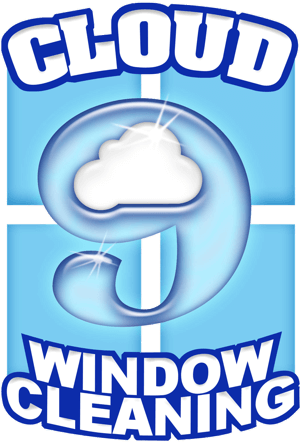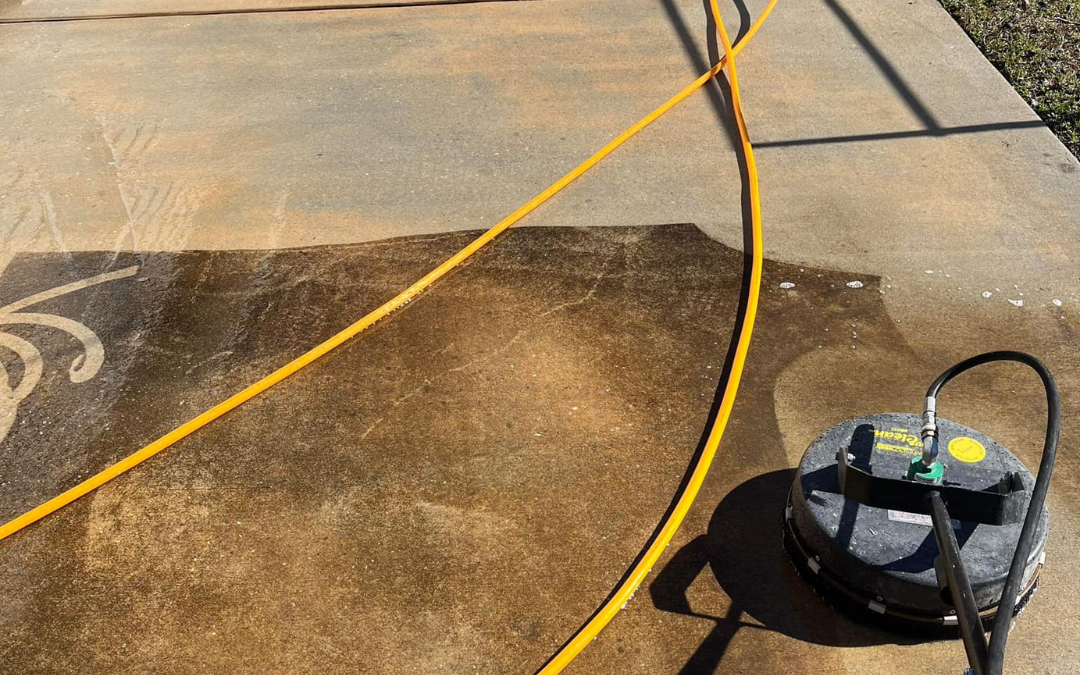Pressure washing is an excellent way to clean driveways, sidewalks, decks, and even some parts of your home’s exterior. However, not every surface can handle the force of high-pressure water. Using a pressure washer on the wrong material can lead to costly damage, stripping, or even structural weakening. Before you power up your machine, here’s what you need to know about surfaces that shouldn’t be pressure washed.
Table of Contents
1. Roof Shingles
Your roof is one of the most important parts of your home, and while it does need regular cleaning, pressure washing is not the solution. High-pressure water can:
- Loosen shingles, leading to leaks and expensive repairs.
- Strip protective granules from asphalt shingles, shortening their lifespan.
- Force water under the roofing material, causing mold and rot.
Instead, opt for a soft wash method, which uses a lower-pressure rinse combined with cleaning solutions to safely remove dirt, moss, and algae. Cloud 9 Window Cleaning offers professional roof cleaning services to keep your home safe and looking great.
2. Wood Siding and Older Homes
While some types of siding can handle pressure washing, many cannot. Wood siding and older homes, in particular, are at risk of serious damage from high-pressure water:
- Water can seep behind the boards, leading to mold growth and structural damage.
- Paint can be stripped away, causing costly repainting jobs.
- Cracks and splinters can form, making your home more vulnerable to the elements.
A gentle hand-cleaning or soft washing is the best alternative. Professional house washing services, like those offered by Cloud 9 Window Cleaning, can safely remove dirt and grime without damaging your home’s exterior.
3. Windows and Screens
Your home’s windows may seem sturdy, but pressure washing can cause more harm than good. The force of the water can:
- Break the glass, especially on older or single-pane windows.
- Damage seals, leading to leaks and foggy panes.
- Tear or stretch window screens, making them ineffective at keeping bugs out.
Instead, use a professional window cleaning service like Cloud 9 Window Cleaning to ensure your glass stays crystal clear without the risk of damage.
4. Stained or Painted Surfaces
If you have surfaces with stains, custom finishes, or paint, be very cautious with pressure washing. The high pressure can:
- Strip away paint, requiring a full repaint.
- Remove wood stain, leaving an uneven appearance.
- Damage decorative concrete coatings, reducing the curb appeal of your home.
For these surfaces, a mild detergent and a low-pressure rinse are the safest options. Hiring a professional ensures a deep clean without unnecessary wear and tear.
5. Electrical Components and Outdoor Fixtures
It might seem obvious, but pressure washing anything electrical is extremely dangerous. Avoid spraying:
- Outdoor electrical outlets
- HVAC units
- Lighting fixtures
- Doorbells and security cameras
Water can get into these systems, causing shorts, malfunctions, or even electrocution hazards. A simple hand-cleaning or a light mist with a garden hose is usually enough to keep these fixtures clean.
Keeping your home clean and well-maintained is important, but using the wrong cleaning methods can do more harm than good. For safe and professional pressure washing, house washing, roof cleaning, and window cleaning, call Cloud 9 Window Cleaning at (812) 306-8110 or check out their Google Maps listing.

